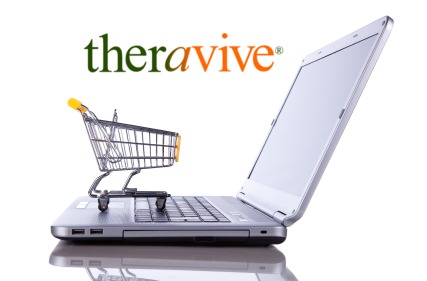
Shopping is a national pastime for many people – especially women. Websites like Ebay, Overstock and Amazon now make it so easy to shop that many find themselves in financial trouble from their pursuit of the next great bargain. The brains behind selling items by auction online really upped the ante by tapping into the mania among Americans who love to compete for the best deal.
When Does Shopping Become an Addictive Behavior?
Addiction is defined in public policy by the American Society of Addiction Medicine as follows:
“Addiction is a primary, chronic disease of brain reward, motivation, memory and related circuitry. Dysfunction in these circuits leads to characteristic biological, psychological, social and spiritual manifestations. This is reflected in an individual pathologically pursuing reward and/or relief by substance use and other behaviors.
Addiction is characterized by an inability to consistently abstain, impairment in behavioral control, craving, diminished recognition of significant problems with one’s behaviors and interpersonal relationships, and a dysfunctional emotional response. Like other chronic diseases, addiction often involves cycles of relapse and remission. . .”
For the purposes of this dialogue, suffice it to say that shopping has become addictive when the compulsion to act (buy something) involves obsessive thoughts (ruminating about going shopping or purchasing a specific item) that one is unable to easily resist. Meaning, a person who is not a compulsive shopper/spender would not be compelled to act (shop or make an online purchase) in a similar situation.
Identify the Problem
For those who have crossed over from casual shopping to addictive shopping/spending, resisting a sale or waiting to make a purchase at a later time often results in a barrage of obsessive thoughts about the item or the desire to go out and shop. The relentless onslaught of excuses, explanations and justifications about why the purchase must happen now can be overwhelming and very difficult to resist.
There are a number of questions to ask yourself to determine if you are dealing with addictive shopping behavior. Among them are:
- Do you shop when you are feeling sad, anxious, worried, bored, lonely, etc.?
- Do you buy things you don’t need or use?
- Do you buy things when you cannot afford to spend the money?
- Have you experienced financial difficulty as a result of your spending (overdraft fees, late fees resulting from paying bills late, returned checks, etc.)?
- Do you obsess about buying items that you simply must have?
There are online assessments that go into more detail. If you are worried about your spending or shopping habits, take a few minutes to complete an assessment (listed in the reference section below).
How to Stop Addictive Shopping
Giving up addictive shopping/spending is similar to addressing any other addiction. The first step is identifying the problem and admitting that it is out of control. Because we all need to buy some things at times, this is a situation where moderation is the key. A lot of people require financial counseling to address debt problems. Many choose to shop with only cash and in person – no online or credit/debit purchases. The best solution for you is one tailored to your needs based on your history and circumstances.
You will also have to be brutally honest about your past and future spending with family members. Many people with addictive shopping problems have developed a pattern of telling half truths or full out lies about their behavior. This is part of the problem and will need to be part of the recovery. Find a therapist or support group to help you develop a plan for recovery that works for you. On-going support and accountability is usually necessary for recovery – at least for the first 6-12 months.
It is important to note that those who have underlying issues (OCD, anxiety, ADHD/impulse control problems, Bi Polar Disorder, depression, etc.) often start acting out compulsively in different ways if they stop their current addictive behavior. Those who stop shopping or spending compulsively are at risk to replacing that behavior with another compulsive behavior. Eating, sex, porn, gambling, drinking and other drug abuse are included in these alternate compulsive opportunities.
A professional therapist or support program can help you identify underlying problems and ways to address the root cause. Another consideration is financial counseling to address debt and correct spending patterns. In some cases, bankruptcy may be necessary. For those with underlying disorders like OCD, ADHD, Bi Polar Disorder, etc., treatment for that condition is usually required for lasting change to be effective.
__________________________________________________________________________________________________________________________________________
April, Benson. "Who Needs Help?" Shopaholicnomore.com. N.p., n.d. Web. 26 Sept. 2013. <http://www.shopaholicnomore.com/who-needs-help/>. Benson, April. Is Your Client a Compulsive Buyer? N.p.: n.p., n.d. PDF.
"Recoveries Anonymous: The Solution Focused 12 Step Program." Compulsive Spending; RA's Twelve Step Compulsive Spending Recovery Program. N.p., n.d. Web. 27 Sept. 2013. <http://www.r-a.org/i-compulsive-spending.htm>.
US. American Society of Addiction Medicine. Public Policy Statement: Definition of Addiction. N.p.: n.p., n.d. Definition of Addiction. American Society of Addiction Medicine. Web. 26 Sept. 2013. <http://www.asam.org/for-the-public/definition-of-addiction>.
About the Author
 LuAnn Pierce, LCSW
LuAnn Pierce, LCSWI am a clinical social worker, therapist and writer. Currently, I offer online therapy and coaching services to people in Colorado and Wyoming. As a provider for the CO Department of Vocational Rehabilitation and the National MS Society, my expertise in counseling people who have disabilities and chronic illness is considerable. I have written for About.com, DailyRx.com, Theravive.com, GoodTherapy.org, SelfHelpMagazine.com and contribute to several other online health and mental health sites.
Office Location:
19th & Dahlia
Denver, Colorado
80220
United States
Phone: 303-910-2425
Contact LuAnn Pierce, LCSW
Professional Website:
http://HireASocialWorker.com